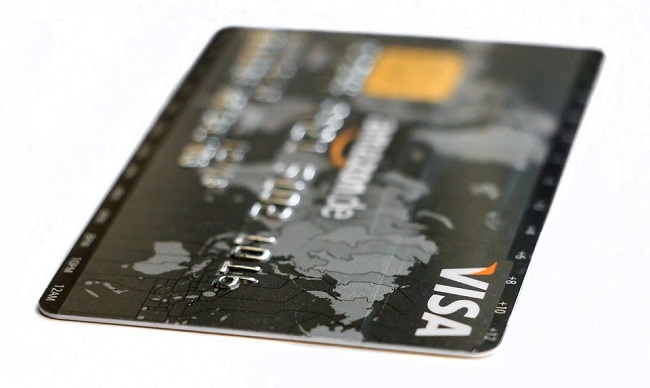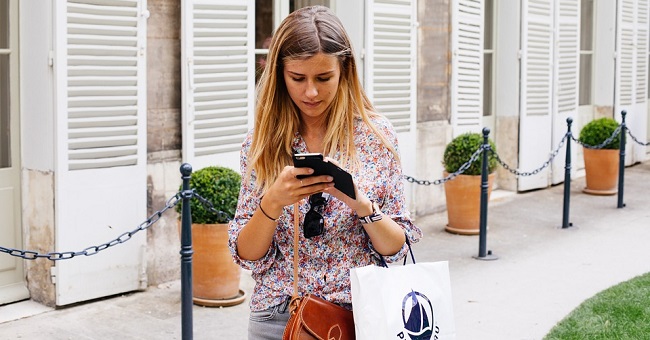This new opt-in feature is designed to boost security while decreasing the number of card declines.
U.S. Bank announced the adoption of geolocation technology to help improve the security of payment transactions for travelers. The idea is that a shopper can use his or her mobile phone to confirm his or her identity when using a credit card.
If a credit card purchase is made at a different location from that of the mobile device, it will be declined.
The concept of this use of geolocation technology is to stop transaction declines from happening unnecessarily. Instead, a traveler’s identity will be further confirmed by the presence of his or her mobile phone in the same location as the transaction. In this way, it stops a person who has stolen the card from being able to successfully complete a transaction. After all, if they grab the card – or card info – and run, they will be too far away from the actual cardholder to use it.
This avoids the dreaded auto-decline message some travelers get when they try to make a purchase that is out of sync with their typical buying patterns. That said, it’s important to note that this geolocation service is opt-in. It is not being automatically implemented for all U.S. Bank issued Visa cards.
Furthermore, this geolocation technology service is activated only by cardholders who are traveling.
 Purchases made closer to home will not qualify for this additional mobile security component for credit card transactions. The fraud prevention program is being released in waves.
Purchases made closer to home will not qualify for this additional mobile security component for credit card transactions. The fraud prevention program is being released in waves.
According to U.S. Bank’s Retail Payment Solutions division senior vice president and head of product and marketing, Clifford Cook, “We’ve all experienced that embarrassing moment when your credit card is declined at dinner while on vacation because the bank thinks you should be at home in Minneapolis, but you’re eating dinner in Seattle.” Cook explained that “When your phone is on and you’ve opted-in for geolocation, U.S. Bank can validate that the expense is legitimate and avoid customer frustration.”
To start, U.S. Bank FlexPerks Visa cardholders will be able to opt into the geolocation technology program when they travel. All they need to do is activate the feature using the FlexPerks mobile app.
A recent survey revealed these mobile commerce features are sought after by consumers.
Zebra Technologies held a global survey revealing location based services are sought-after by consumers. The number of shoppers interested in using geolocation technologies while in-store is rising quickly.
Among the geolocation features most sought by consumers are digital shopping maps and mobile coupons.
Fifty one percent of shoppers are interested in mobile coupons sent through location based services, said the survey. These consumers want discount opportunities provided in-store by way of mobile devices. Another 49 percent said they are interested in receiving email receipts instead of or in addition to paper copies. Moreover, 45 percent said they are interested in digital shopping maps provided in-store on their phones.
The research examined global digital shopping habits including interest in location based services.
 Zebra Technologies published their findings in their annual Global Shopper Study. Also reported in the study were additional mobile commerce trends. Among them was that 76 percent of shoppers enjoy the in-store shopping experience. Furthermore, 50 percent of consumers think online and mobile technology solutions improve their experiences. They feel the retail experience is enabled and enhanced with this tech.
Zebra Technologies published their findings in their annual Global Shopper Study. Also reported in the study were additional mobile commerce trends. Among them was that 76 percent of shoppers enjoy the in-store shopping experience. Furthermore, 50 percent of consumers think online and mobile technology solutions improve their experiences. They feel the retail experience is enabled and enhanced with this tech.
Over half – 52 percent – of shoppers say they have showroomed. Showrooming is the practice of looking at an item in store before purchasing it online at a better price. In addition, slightly more than one third – 33 percent – of shoppers said they most enjoy the chance to shop online and pick up their purchases in-store. This indicates that many people want to shop on their devices and obtain their items at the retail store.
Among the leading barriers to mobile commerce and location based services is a lack of trust in security. Large data breaches in the news headlines have made consumers wary of online and mobile shopping. Only 5 percent of consumers say they fully trust retailers. Still, nearly 80 percent said they would share a certain amount of information with retailers, regardless of less-than-perfect trust. Also, 64 percent of consumers value companies that offer features to customize the way personal information is collected, stored and used.
 Purchases made closer to home will not qualify for this additional mobile security component for credit card transactions. The fraud prevention program is being released in waves.
Purchases made closer to home will not qualify for this additional mobile security component for credit card transactions. The fraud prevention program is being released in waves.
 Zebra Technologies published their findings in their annual Global Shopper Study. Also reported in the study were additional mobile commerce trends. Among them was that 76 percent of shoppers enjoy the in-store shopping experience. Furthermore, 50 percent of consumers think online and mobile technology solutions improve their experiences. They feel the retail experience is enabled and enhanced with this tech.
Zebra Technologies published their findings in their annual Global Shopper Study. Also reported in the study were additional mobile commerce trends. Among them was that 76 percent of shoppers enjoy the in-store shopping experience. Furthermore, 50 percent of consumers think online and mobile technology solutions improve their experiences. They feel the retail experience is enabled and enhanced with this tech.